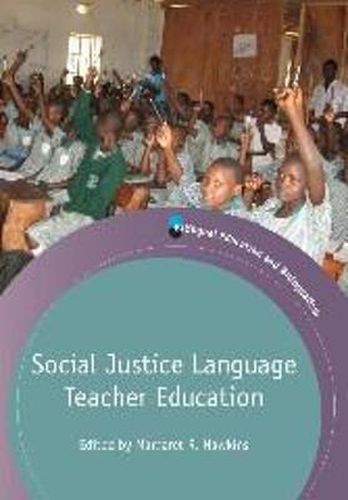Readings Newsletter
Become a Readings Member to make your shopping experience even easier.
Sign in or sign up for free!
You’re not far away from qualifying for FREE standard shipping within Australia
You’ve qualified for FREE standard shipping within Australia
The cart is loading…






Social justice language teacher education is a response to the acknowledgement that there are social/societal inequities that shape access to learning and educational achievement. In social justice language teacher education, social justice is the driving force and primary organizational device for the teacher education agenda. What does social justice mean in diverse global locations? What role does English play in promoting or denying equity? How can teachers come to see themselves as advocates for equal educational access and opportunity? This volume begins by articulating a view of social justice teacher education, followed by language teacher educators from 7 countries offering theorized accounts of their situated practices. Authors discuss powerful components of practice, and the challenges and tensions of doing this work within situated societal and institutional power structures.
$9.00 standard shipping within Australia
FREE standard shipping within Australia for orders over $100.00
Express & International shipping calculated at checkout
Social justice language teacher education is a response to the acknowledgement that there are social/societal inequities that shape access to learning and educational achievement. In social justice language teacher education, social justice is the driving force and primary organizational device for the teacher education agenda. What does social justice mean in diverse global locations? What role does English play in promoting or denying equity? How can teachers come to see themselves as advocates for equal educational access and opportunity? This volume begins by articulating a view of social justice teacher education, followed by language teacher educators from 7 countries offering theorized accounts of their situated practices. Authors discuss powerful components of practice, and the challenges and tensions of doing this work within situated societal and institutional power structures.